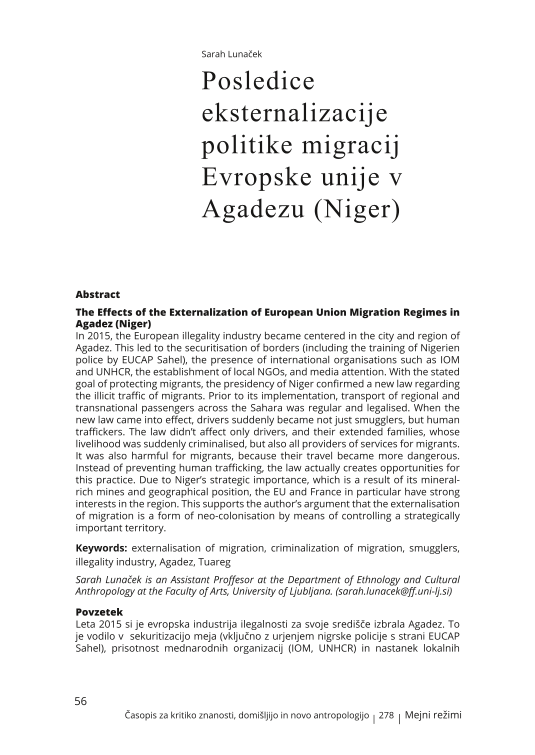In 2015, the European illegality industry became centered in the city and region of Agadez. This led to the securitisation of borders (including the training of Nigerien police by EUCAP Sahel), the presence of international organisations such as IOM and UNHCR, the establishment of local NGOs, and media attention. With the stated goal of protecting migrants, the presidency of Niger confirmed a new law regarding the illicit traffic of migrants. Prior to its implementation, transport of regional and transnational passengers across the Sahara was regular and legalised. When the new law came into effect, drivers suddenly became not just smugglers, but human traffickers. The law didn’t affect only drivers, and their extended families, whose livelihood was suddenly criminalised, but also all providers of services for migrants. It was also harmful for migrants, because their travel became more dangerous. Instead of preventing human trafficking, the law actually creates opportunities for this practice. Due to Niger’s strategic importance, which is a result of its mineral-rich mines and geographical position, the EU and France in particular have strong interests in the region. This supports the author’s argument that the externalisation of migration is a form of neo-colonisation by means of controlling a strategically important territory.




